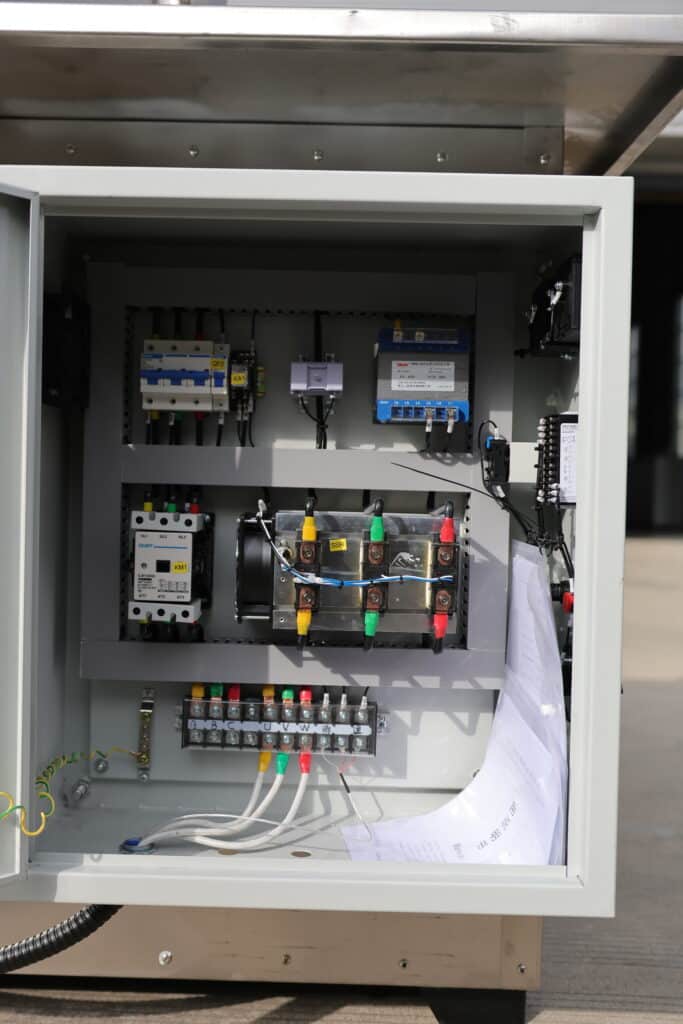The performance of boiler equipment, a vital source of heat in industrial production, directly affects the efficiency and cost of the entire production line. Whether it is in a heating system or in various industrial applications, choosing the right boiler equipment is crucial. With the promotion of energy saving and environmental protection, how to choose an efficient and sustainable boiler plant and how to improve its performance through regular maintenance has become a focus of attention in the industry.
1. Core functions and roles of boiler equipment
Boiler equipment is mainly used to heat water or generate steam by burning fuel for heating or driving industrial processes. There is a wide range of boiler equipment depending on the function and working principle, including gas boilers, oil boilers, electric boilers and so on. These devices play an integral role in industrial production, heating, and hot water supply.
For different application scenarios, boiler equipment needs to be optimised according to the heat load demand, the operating environment and the type of energy source. For example, large industrial production enterprises usually prefer gas boilers with higher energy conversion efficiency, while commercial buildings and households prefer electric or small gas boilers with lower maintenance costs.
2. Energy-efficient technologies and innovations in boiler equipment
In the development of modern boiler technology, energy saving has become an important indicator. The application of condensing boilers is a breakthrough in energy-saving technology. By recovering the heat in the flue gas, the condensing boiler effectively improves the thermal efficiency and reduces the waste of energy. In addition, the introduction of intelligent boiler systems, equipped with automatic adjustment of temperature, pressure and combustion mode, can dynamically adjust the boiler's working status according to changes in demand, thus maximising the efficiency of heat energy use.
Another important energy-saving innovation is the use of variable frequency control technology. By regulating the operating speed of the boiler plant, inverter technology is able to reduce energy consumption by maintaining stable boiler operation without the need for high power.
3. Selection of boiler equipment and system optimisation
When selecting boiler equipment, the first step is to determine the size of the equipment required based on the actual heat load demand. Large-scale industrial applications usually require larger power boiler equipment, while small commercial or domestic use should choose suitable small and medium-sized equipment. At the same time, the type of energy source for the boiler, the availability of fuel, and the automated control capability of the equipment are also factors to be considered when selecting boiler equipment.
Optimising the boiler system involves correctly matching boiler and heat exchanger specifications to ensure the efficiency of hot water or steam transfer. In addition, the layout design of the boiler system is also critical. Proper piping design and valve configurations can reduce energy waste and improve the overall operating efficiency of the system.
4. Maintenance and overhaul of boiler equipment
Regular maintenance is essential for the efficient operation of boiler equipment. The various components of a boiler, such as heat exchangers, burners and pipework, need to be inspected and cleaned regularly. Accumulated scale or dirt can affect the heat exchange efficiency of the boiler, leading to energy wastage. Therefore, regular water treatment work and internal cleaning of the equipment is particularly important.
In addition, the combustion system of the boiler needs to be calibrated regularly according to the usage environment to ensure sufficient combustion and reduce the emission of harmful gases. During the operation of the boiler, through real-time monitoring and intelligent management system, abnormalities can be detected and adjusted in time to avoid unnecessary failures and downtime.
5. Customising boiler equipment to meet specific needs
In many specialised application scenarios, standard boiler equipment cannot meet the specific needs of the customer. For example, certain industries may have more precise requirements for temperature and pressure control, or specific requirements for fuel type adaptability. At this point, non-standard customised boiler equipment becomes the solution. Customised boilers can be designed to optimise the overall system performance according to the needs of the industry.
Our company can non-standard custom products, click the menu bar to contact us to customise, you can also refer to the first!product pageAppreciate our company's products oh!
Recommended Reading:
